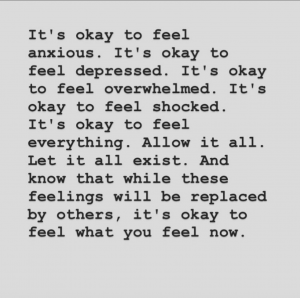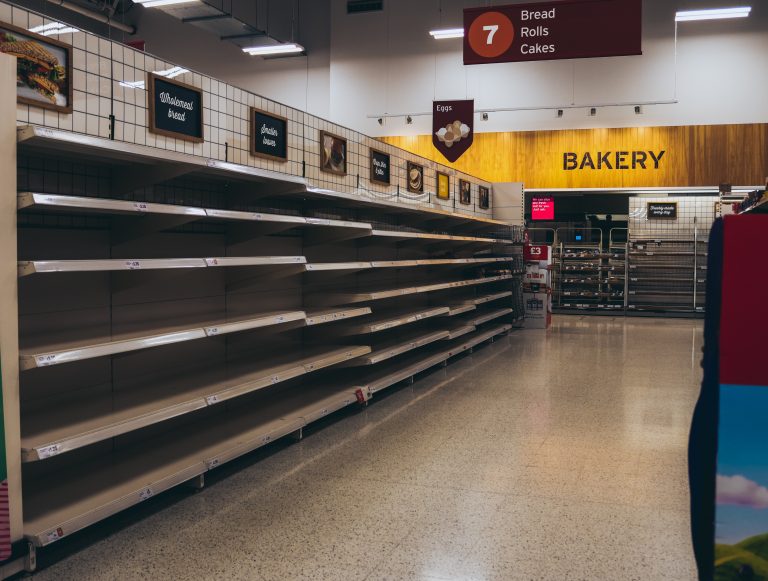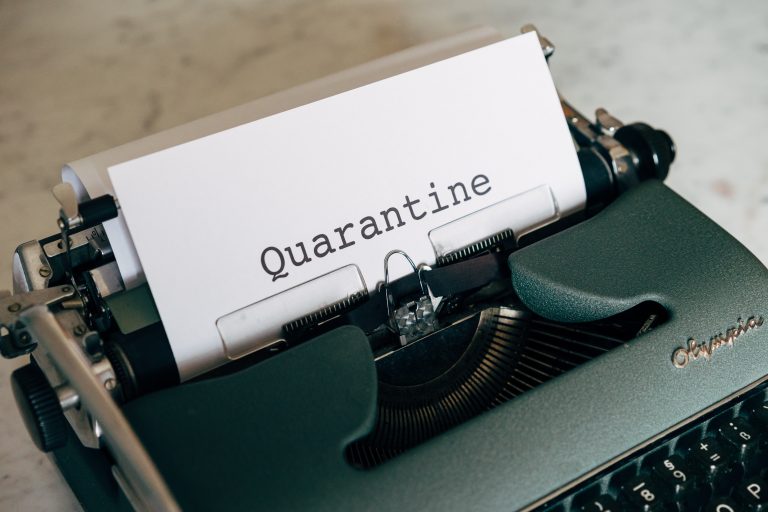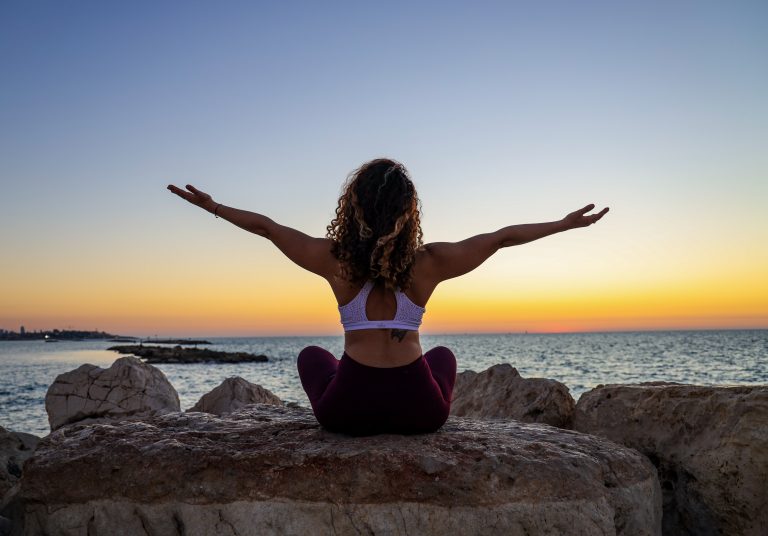The following is an account from a member of the community on their experience in self-isolation. If you’d like to contribute, add a comment, or send us a photo of your life in lockdown – please write to us at blog@trcgroup.org.uk. We’d love to hear from you during this time.
I never stay at home all day – not even when I’m ill. I’m not good at pyjama days and I get fidgety after more than one episode on Netflix. I work in the library or in coffee shops to avoid being in the house in the day. When I am in the house, it is always at an hour where I have nothing to do except chat to my friends or relax. I’m a student so never just in one place at one time, and I’m not used to having a routine at home; my routine is completely structured by the places I am outside of my house; working in the library, running in the park, out with friends etc.
As a result, initially I dealt with the news that I would have to self-isolate for a week by panicking slightly. Me and my flatmates sat on the front steps drinking endless nespressos; we spent all morning in pyjamas talking about how there was absolutely no way we were going to be able to do this (all four of us that live in my house had to self isolate).
Obviously, that conversation just made us feel worse. My friend, who is quite proactive, eventually got a pen and paper and made a list of things we needed; food, wine, coffee, a pack of cards, board games, etc. We arranged to get them all delivered. The first day, we were so full of adrenaline that it was a bit of a right off. The total lack of routine made us all just feel confused and disorientated.
The next day I tried something different. I decided I needed some semblance of routine. For me that meant making myself get dressed in proper clothes – even putting on mascara – despite the fact that it felt pointless. I decided I needed to act as if it was just a normal day. I set myself up a home-office in the kitchen because my room felt too small and claustrophobic and I was so anxious that that was distracting me in itself. I made a timetable for all the work I needed to do this week – this is something I do every week – and even just having that normalcy and certainty helped. I didn’t concentrate in the way I can in the library, but I figured there was no point expecting that level of productivity of myself. This was a different situation, and I gave myself permission to do even just 3-4 hours of work if that was all I could manage. Taking the pressure off of myself – and accepting that this is an unusual situation, and there was no point expecting myself to carry on as “normal” despite the fact that there is nothing “normal” about this – really helped to ease my own anxiety about my work load.

I was really scared me and my flatmates were all going to fight, given how much time we would inevitably spend together locked in the same house. I hate confrontation, particularly with the people I live with. I find it really shakes my sense of security. I think we all had that worry – but luckily it went the other way. We tried to keep each other distracted from the fact we were all feeling anxious and stir crazy. We had our own wine and cheese evening, played scrabble, learned each other’s favourite card games, and I feel so lucky to have been in isolation with people – I don’t think I could have done it without company.
After a breakdown from one of my friends, we decided to do something active because she was freaked out that she felt really trapped in her body and restless. We did a kid-olympics and staged our own egg and spoon races and leapfrog. It was stupid and I’m not even sure how we came up with it, but we couldn’t stop laughing and it completely took our mind off of the fact that we couldn’t go anywhere. I think worrying about not being able to go anywhere is the worst thing because it just made me feel more claustrophobic and trapped. Focusing on all the things I could still do at home, rather than the things I couldn’t, helped so much.
I have an eating disorder, and the idea of not being able to be active, walk around, go to the gym or to classes was probably a big part of why I was so freaked out initially. I really had to calm myself down about it, and ring my sponsor and share the reasons I was feeling anxious about not being able to be as active as I usually am. I added on to my timetable two days where I would exercise at home, and the rest I told myself I just had to accept that I wasn’t going to be moving much. It was really hard, but there are online meetings (ABA) every day, and I did them most days.
The longer it went on, the more I realised that I actually could do this. I wasn’t used to it, and staying at home certainly isn’t something that comes naturally to me, but I didn’t feel anywhere near as trapped as I thought I would. It wasn’t fun, and it wasn’t as busy or active or productive as a normal week, but it also wasn’t as bizarre as I’d expected it to be. In some ways, it gave me time to do things I’d been meaning to do for a while; call the people who I hadn’t caught up with in ages, do a hair mask, write more of my dissertation, finish the book I’d had to put down at the end of summer because I was too busy.
Having therapy sessions on Face Time really helped as well, and helped to make me feel less alone with everything going on. I was really worried about it initially because one of the things I love about having sessions in person is the feeling of total safety that comes from going into a room where I know no one else can hear me/will walk in/ will find out what I’ve said.
I was really unsure how I was going to find a similar level of privacy to talk freely in my home, as I live with three friends who I haven’t told that I see a therapist. It was fine in the end, and I managed to find somewhere private to chat, and that was really the only difference I found between an in person session and a Face Time session.
Apart from that, it functioned just as any session normally would, and I felt so much better after for talking so honestly about how I was feeling in a way I only really do to that extent in therapy. I also felt better for knowing that despite all the change and uncertainty at the moment, I could still have regular sessions and that that could provide some constancy and support.
Whilst we were desperate for updates of the pandemic that had us locked inside, reading the news didn’t necessarily always help. I’m someone with a really freaked out and anxious view of the world in general. I have OCD and am endlessly washing my hands trying to control an inevitable hoard of contamination from the world around me. Obviously, coronavirus has made that particular set of worries worse. On day one I think I Dettol-ed our kitchen surfaces about 30 times. I felt like I wanted to kill my flatmate who ate a digestive biscuit without washing her hands or using a plate. Then I realised if I killed her I would go to prison, and I would find prison difficult because it would disrupt my busy routine! So I didn’t do that. But I did have to really limit myself to watching the news and talking about it only for a little bit each day. When the world starts feeling apocalyptic, I’ve decided I have to turn the news off. Not because I don’t care, but because my view of the world is default “we are all going to die” “what is the point” etc., and when I start thinking like that I get really depressed.
There were a couple of moments I really felt despairing about everything and how uncertain and out of control it feels, and for me the only thing that worked was just curling up on my bed for an hour and listening to music and giving myself that time to breathe. I followed people on Instagram who were talking about the importance of protecting our mental health in the midst of this crisis; @bodyposipanda is a fab account, as is @waylonlewis, @poppyjamie and @mattzhaig. They all post good ways to look at crisis and calming messages for uncertain times.




